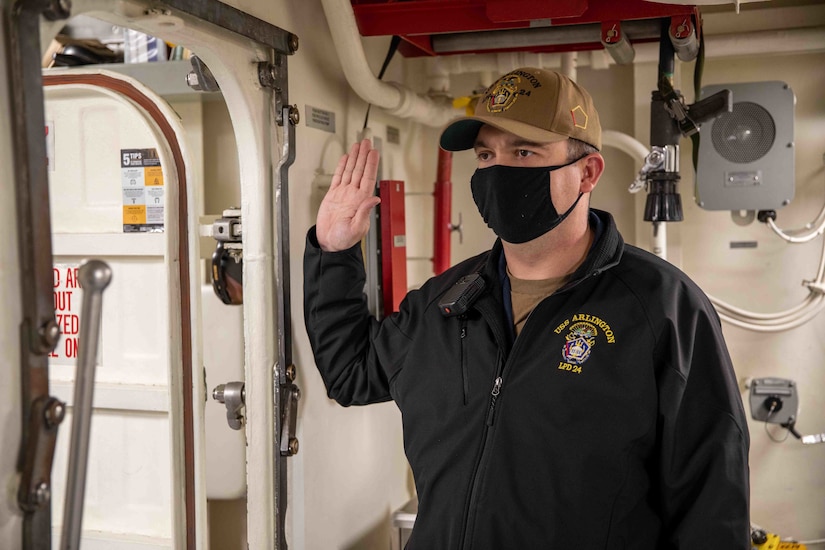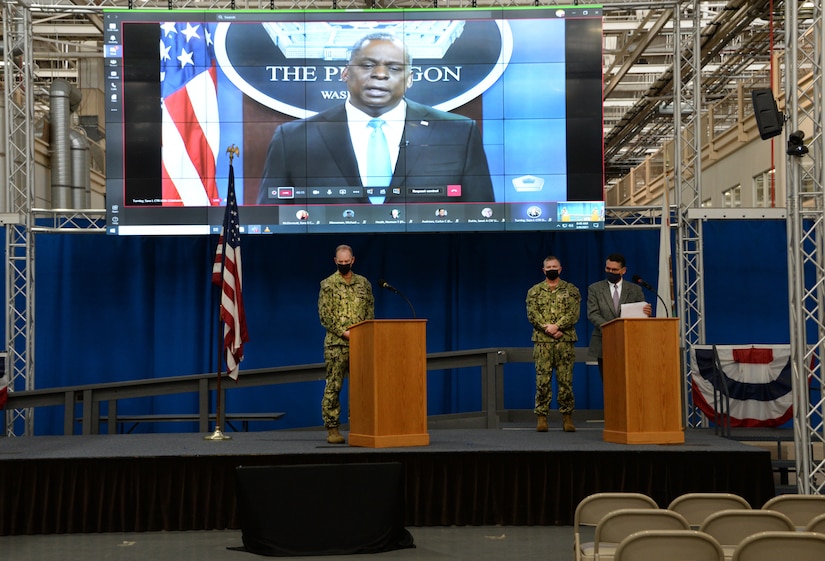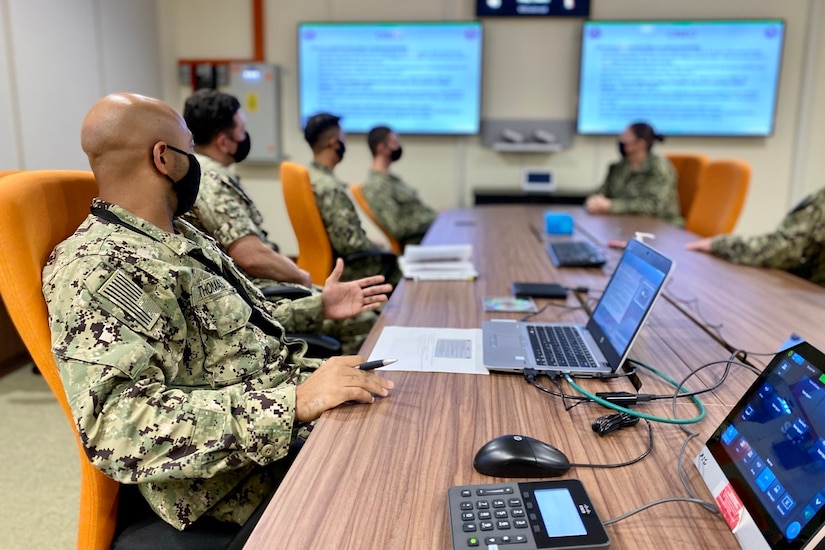March 18, 2021 | , DOD News
On April 1, the services must collect data from subordinate commands and provide notification to senior Defense Department leadership about having completed the training for every service member, and any feedback they received during the training stand-downs — information the department will use in finding better ways to educate the forces about extremism in the ranks and root it out, Senior Enlisted Advisor to the Chairman Ramón "CZ" Colón-López, the senior enlisted advisor to the chairman of the Joint Chiefs of Staff, said.

"I will tell you that we are wanting to move fast on all these initiatives because we're dealing with people, and we just need to make sure that we provide the results that they need to have an environment that is worthy of serving," Colón-López said during a press briefing today, adding that extremism is not going to be tolerated. "We're committed to confronting and rooting out extremism in the military."
The initial training is just the beginning, Colón-López said. In the future, there will be more training and that follow-on-training will be developed and revised based on feedback from the services.
"Training may actually evolve into something else that we need to go ahead and give [to] specific people, like first sergeants as an example, [who] are the ones that are gauging the behavior of units," Colón-López said. "I foresee that there will be some changes coming based on what we learn from people."

Something else, he said, is that the military services must collaborate on how to set policy regarding extremism and the training on extremism as well, so that it's relatively uniform across the services, because the future wars we fight are going to be joint. For that to happen, there must be uniformity across all services in how things like extremism are addressed.
"We see that we need to collaborate a lot more," he said. "Nothing that we do is unilateral by service. Everything that we do is likely to be joint. And if you have a commander that's in charge of different people ... then I cannot be applying different rules for [one or the other] ... we need to have a common understanding. And that is the direction that the military needs to go."
Military leaders have speculated that the number of extremists in the ranks is not high, though concrete numbers are not yet available. Colón-López said that right now, what's important is that those who are in the ranks know the military is seeking them out and will put an end to extremism.

"What is most important to me right now is the prevention of that behavior," he said. "Because even if they exist right now, if they know that the department and the institution is looking for that behavior, and wanting to crush it, then they will think twice about performing those acts. This is all about prevention. We don't want people to commit criminal activities. ... The key point here is that we need to make sure that we let our personnel right now, past and present, know that we do not tolerate that behavior, and that we're going to educate our people to know right from wrong."








No comments:
Post a Comment